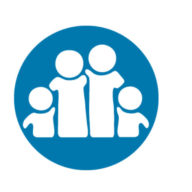Recent events in the Middle East have raised many emotions and left many of us feeling heartbroken, confused, and/or angry. We at FSC, echo the statement by the American Psychological Association highlighting the importance of honoring human life. Even someone who is not physically in the area of conflict, but is learning about it secondhand, can still experience traumatic responses and lasting wounds as well.
It’s normal and expected to seek information and answers, to try to make sense of the unthinkable, and to want to take action to relieve the suffering. Often, the more we search, the more we feel overwhelmed by the amount and complexity of the information. Given all of this, focusing on care and respect for ourselves and those around us may be an effective way to cope with our feelings. It may seem of little consequence in a world struggling with so much pain and violence, but committing ourselves to self-regulation, kindness, and care are things we can do.
 Below are practical strategies for self-care (to help calm our nervous system) during these times:
Below are practical strategies for self-care (to help calm our nervous system) during these times:
- Seek out connection with supportive loved ones
- Be compassionate and gentle with yourself and others
- Limit excessive media exposure including social media, push notifications, graphic images
- Give yourself permission to set boundaries when you need space to yourself
- Work to maintain rituals and routines – these communicate stability and safety to our brains
- Remember to engage in basic self-care (e.g., nutrition, sleep, exercise, etc.)
- Practice mindfulness and meditation
Remember that experiencing your own strong emotional reactions to learning about tragic events is understandable and even expected. It is beneficial to access your internal resources and the supports around you during these difficult and confusing times.
Various organizations offer additional guidance and resources for coping during times of trauma and war:
Resources:
- NCTSN – Talking to Children about War
- NASP – Helping Children Cope with Terrorism – Tips for Families and Educators
- US Department of Veterans Affairs: PTSD: National Center for PTSD: Media Coverage of Traumatic Events
- SAMHSA – Coping Tips for Traumatic Events and Disasters
If more emotional support is needed, there are people that can help, including those at Family Service Center.




